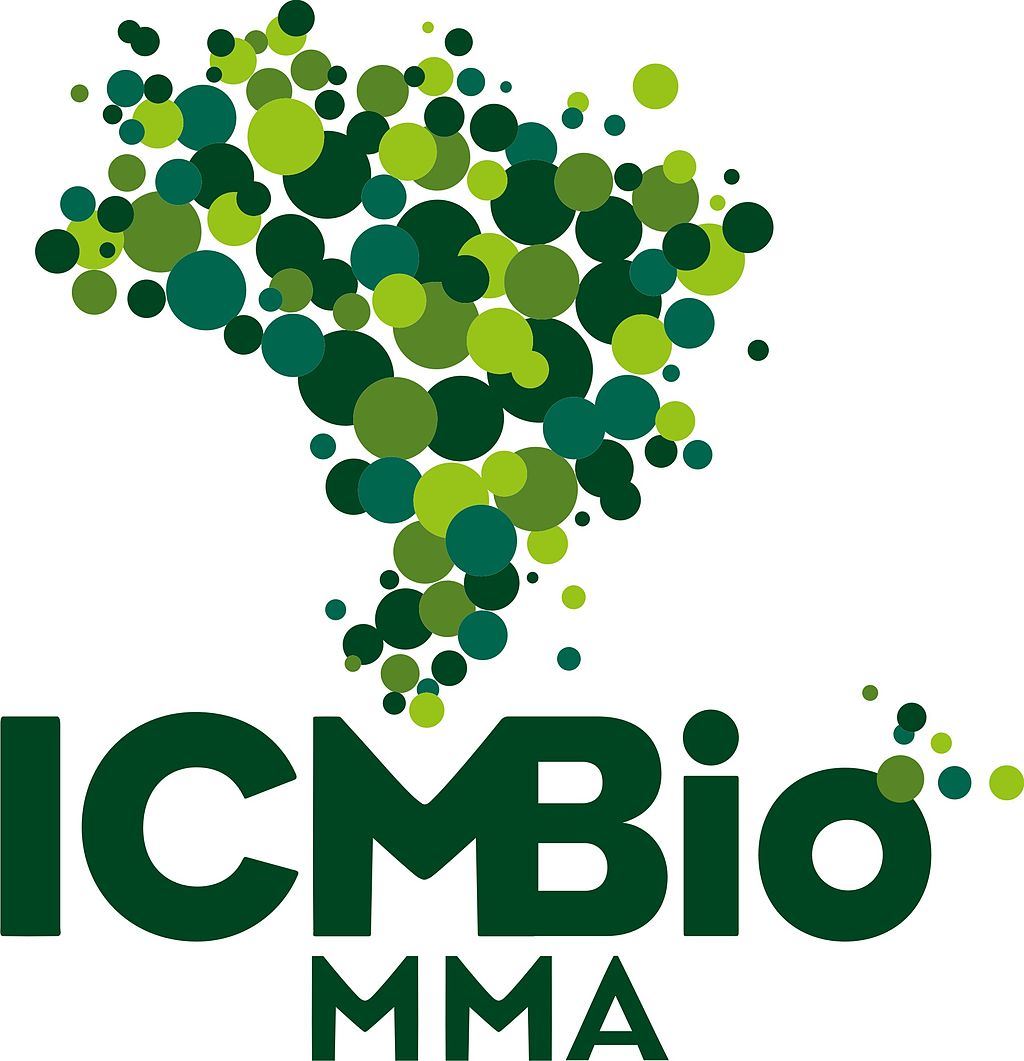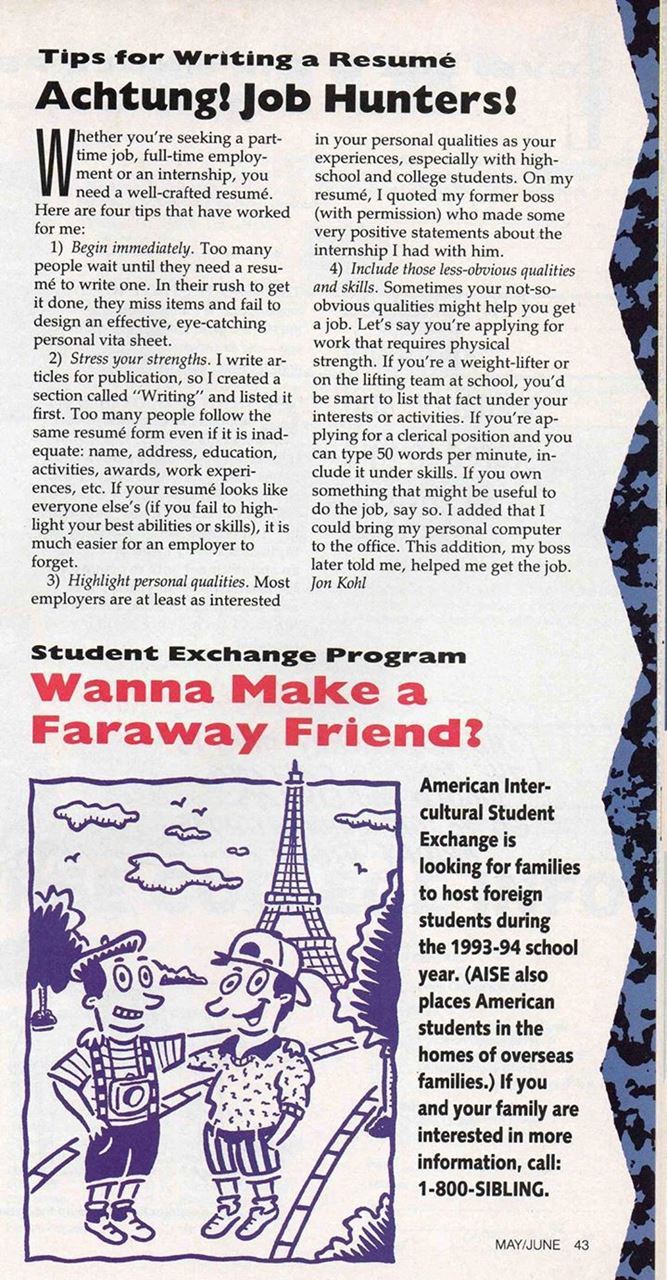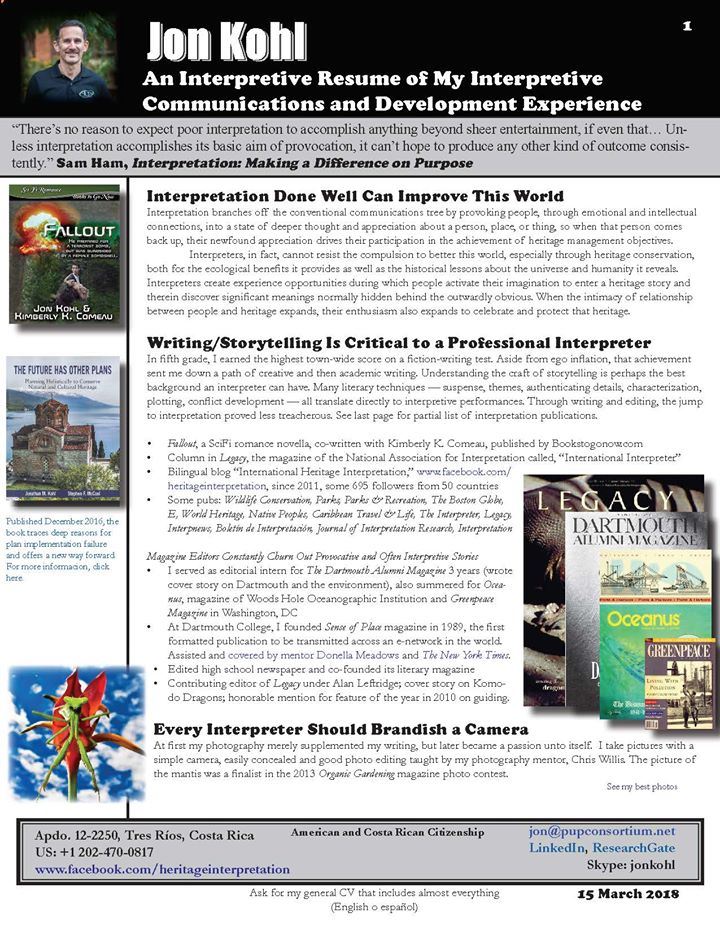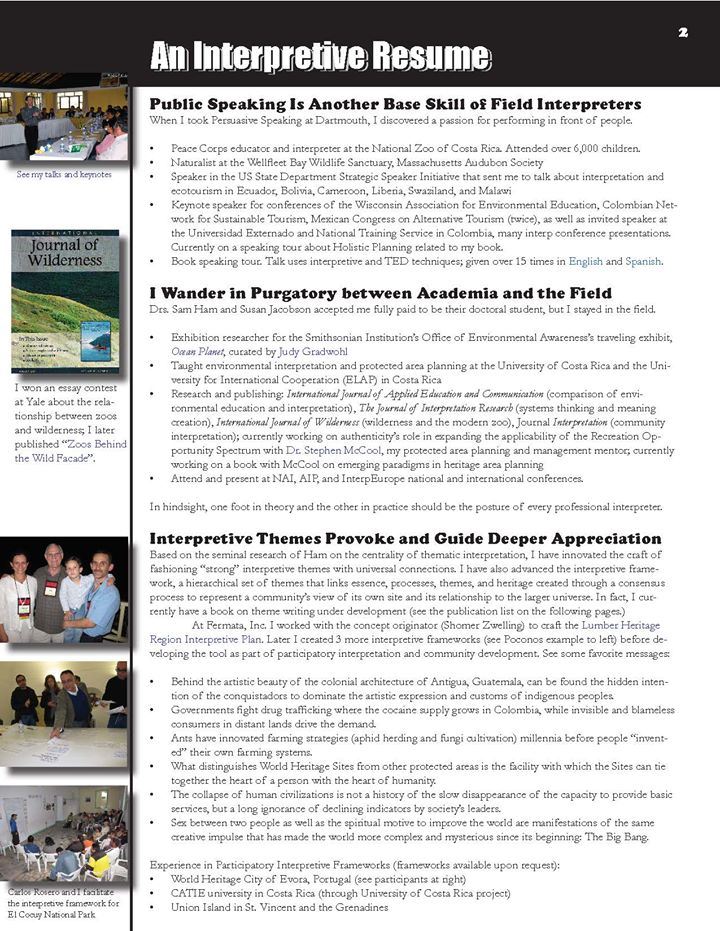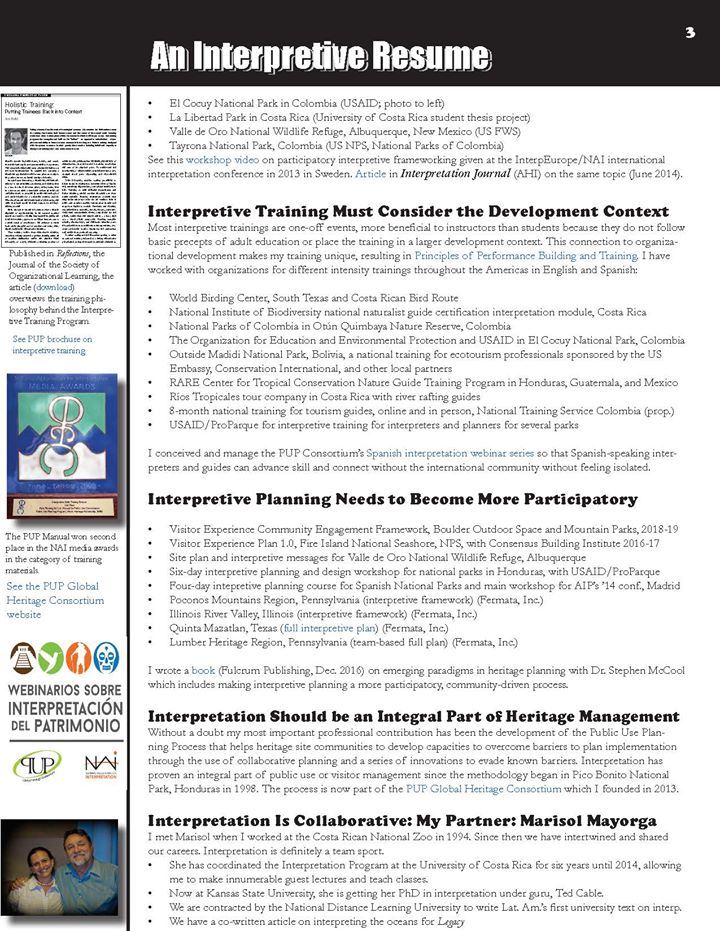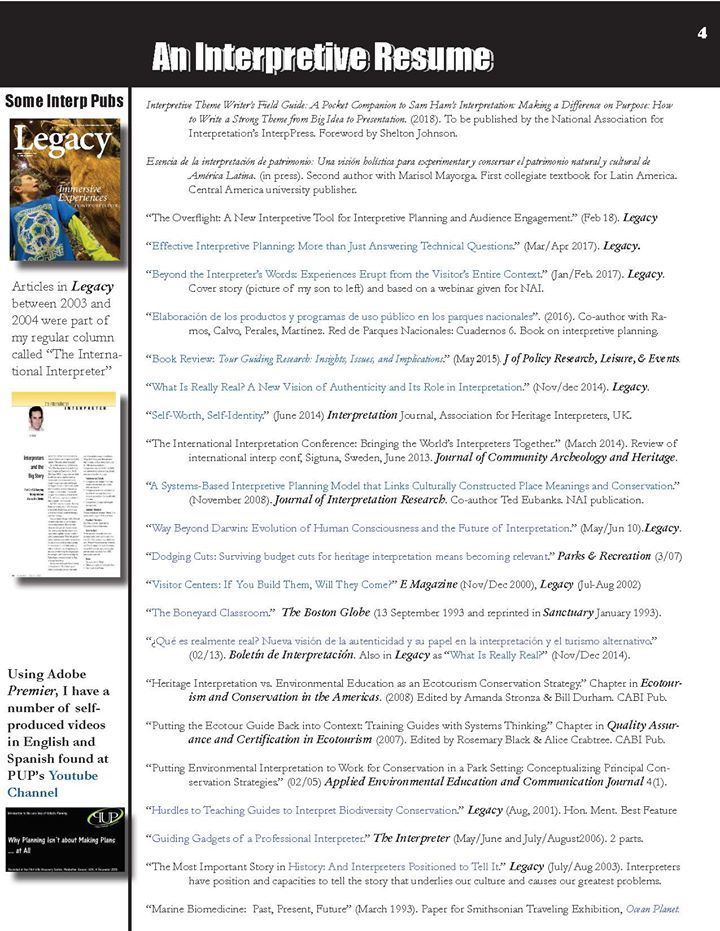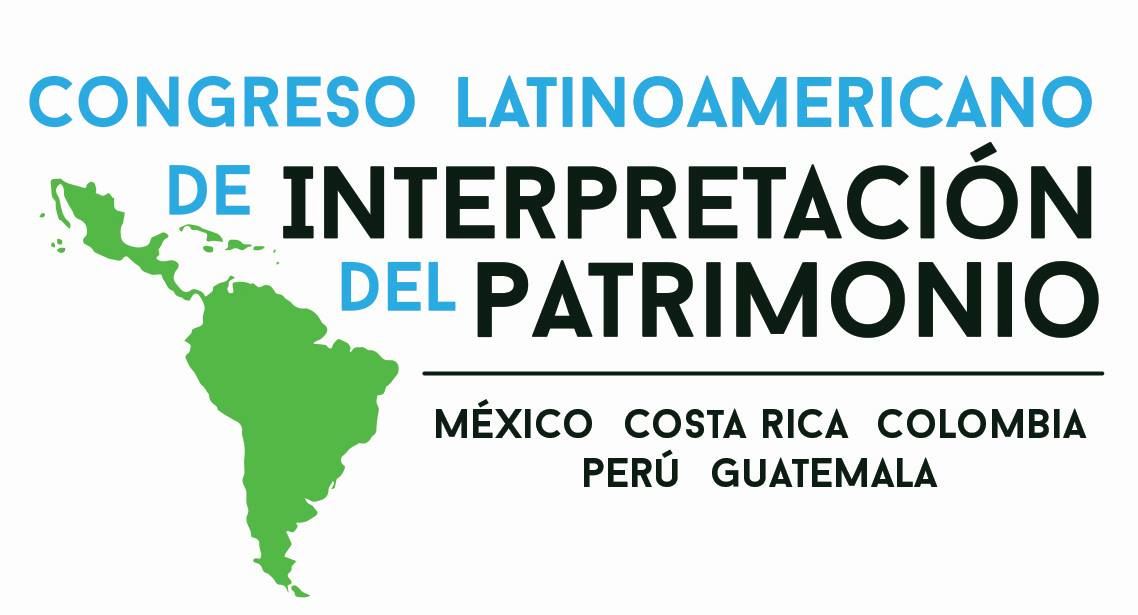| Advancing Integral Heritage Management |
| Steve McCool, on his work with USAID Connecting people with their natural heritage in the Brazilian Amazon has been a major goal of a USAID-funded project, administered by the US Forest Service in partnership with Brazil’s Chico Mendes Institute for Biodiversity Conservation (ICMBio). With more people connected, there is greater interest in conserving the important biodiversity of the Amazon, which is the source of about 20% of the world’s freshwater.
But, to ensure visitors experience the Amazon through a quality trip, public use is managed with a vision and with frameworks based on the best available science and good practices. PUP Consortium Board Member Steve McCool served as the lead facilitator for a five-day course focused on public use planning in June in the community of Itaituba, Para, Brazil, deep in the southeastern region of the Basin. Fifteen participants from ICMBio and five local participants from business, government and academia also attended.
The course focused on developing critical thinking skills, building competence and strengthening confidence in using fundamental public use planning principles and concepts to administer visitor use. Amazonia National Park, encompassing about one million hectares served as the field test of ideas and concepts. The course emphasized continuing education in preparation for using a public use planning process currently under development by ICMBio in cooperation with the US Forest Service, the University of Montana and the National Park Service. Chatting with PUP Summer Intern, Julian Bonorris Julian Bonorris cares about the environmental problems that confront disenfranchised peoples, and indigenous groups in particular. Lying awake at night he can’t sleep because he’s preoccupied with problems of exploited resources and communities, and the factors that create these situations. PUP was lucky to have such a passionate intern assist us from April to June 2018. When I called Julian Bonorris, he was sitting outside of a hotel in Puerto Viejo de Sarapiquí, Costa Rica, (a reliable place for Wi-Fi) and we had a long conversation about his work with PUP, his interests, and his future plans. Julian graduated from Dartmouth College in June 2016 with a degree in Hispanic literature and environmental studies and concentrations in development economics and sustainability theory. Upon graduating, Julian received a fellowship from Dartmouth to do public service work and so off he went to rural northern Nicaragua. For several months, Julian worked with Bridges to Community, a community development non-profit that organizes projects in Nicaragua and the Dominican Republic. Julian’s work consisted of teaching English in primary schools and local universities, translating between local people and medical professionals, and participating in the construction of a hospital with a local Nicaraguan crew. After Nicaragua, Julian traveled to Costa Rica to intern with PUP and Fundecor, a non-profit based in Costa Rica dedicated to sustainable development and the conservation of natural resources. Julian heard about Jon Kohl, PUP President, when Jon visited Dartmouth to give a talk on his February 2017 book, The Future Has Other Plans, and after realizing their shared interests, Julian reached out to Jon. Julian’s internship with PUP involved structuring our think-tank-style research work. Julian compared PUP with other virtual research organizations and analyzed their respective compositions and how each frames research questions and solicits answers. Additionally, Julian was looking for grants and partner organizations with whom PUP could work. For Fundecor, Julian helped advance a project to promote sustainable forest management. Within this project he participated in fieldwork to identify and tag certain trees located through GIS for removal or conservation. He also helped with a large-scale reforestation project in Costa Rica’s mountainous region, where he analyzed the soil in different sectors to identify which tree types could thrive and benefit the local people. When we last spoke, Julian was helping to construct a model of the projected profit for the community. Julian spent his time in Nicaragua helping to develop rural communities and in Costa Rica working on sustainable environmental strategies and policies. He has done a lot of hands-on work in the field and has designed thoughtful strategies to answer difficult questions. While Julian will be returning home to the United States soon to figure out his next path, he hopes to continue to work with disenfranchised communities in Latin America in the future. |
| From the International Heritage Interpretation Blog of Jon Kohl, later republished in Legacy (July-August 2018), the magazine of the National Association of Interpretation. So many people use depersonalized formulas and heartless formats to frame themselves for prospective employers. They should in fact apply interpretation to their resume design, in particular, Ham’s TORE approach. Ham developed TORE based on research. Strong interpretation, he argues, is always TORE: thematic, organized, relevant, and entertaining. All should be applied when designing a CV or resumé. I’ve been writing about resumé writing for a long time (first article about it in Campus Life, 1993) and have critiqued many resumés since then. Many good resumé-writing recommendations are inherently interpretive. Now I’d like to make them explicitly TORE.
Thematic Most applicants should formulate a main idea that they want their CV to convey about themselves. Granted some employers require that people input data into pre-defined fields making it difficult to craft a self-theme. Your CV should express what you want to do (such as an objective) or a philosophical stance or present you as a particular kind of person aiming to do a particular something in life. You can express this through an objective or a mission (what Ham might call a sandwich approach where you clearly state your goal at the outset and you restate it again in some conclusion such as the cover letter). You can also use Ham’s implicit approach based on how you present your information; see “organized” below. In my interpretation CV, I state my philosophical orientation (using a quote by Ham) to state my organizing principle or theme behind my work as an interpreter.
Organized You organize your information to support a self-argument. You could use the standard format (contact information, education, experience, skills) but as any graphic designer knows, this often wastes the most important space at the top by supplying information the employer doesn’t need to know (yet) such as your address. To organize, you may group your experiences according to your theme, rather than chronologically. I organize mine around skill sets to illustrate my well-rounded experience, coming from various angles. I also avoid generic skills or tasks (“wrote reports” “developed proposals” “oversaw people”) rather I focus on more provocative details of what I can do. I do put my contact info on the first page, but I put it at the bottom where it is both easy to find and does not compete with my story hook at the top.
Relevant All interpretation should be audience relevant. Your CV should be as well. I have a more standard CV, but I also have an interpretation CV which is for interpretation-exclusive reasons, in other words, I have tailored a particular CV for an interpretation audience. I include hyperlinks to resources I think will be of interest to readers. I cite people and references whom the reader is likely to know and admire (such as Sam Ham, Ted Cable, NAI media awards). The more I know about the audience, the more I can tailor my CV to their interests. If I know that my employer is a graduate from my university, I may move my education to the front. If I know they like SCUBA, I’ll add that to a conspicuous location. If I know they want an interpretive planner, I’ll spend more time writing that section up front.
Entertaining Resumé writers often forget this point. It’s as if we want our CVs to be boring on purpose, despite how common sense would exclaim otherwise. We can make our CVs more entertaining without sacrificing quality. For example, in my CV, I give personal anecdotes (I turned down fully-paid PhD offers from Drs. Sam Ham and Susan Jacobson) and stories (I interpret with my wife and I straddle academia and field work). I use photos and graphics and quotations that stimulate interest as well as reflect on my personal qualities. I afford plenty of opportunities for the reader to hyperlink to other interesting articles and institutions. I even include a photo of me which, if not entertaining, is funny. Hopefully achieving the same effect.
Other Thoughts I admit that my CV is full, and I do this in part to demonstrate applicability of interpretation to my interpretation CV. I figure, how could an interpreter’s CV not be interpretive? It is important to have your support material online in case readers want them. While I still have my personal website, www.jonkohl.com, I don’t update it anymore. This is because there are so many online resources for showcasing photos (Instagram), publications (ResearchGate, Academia), videos (Youtube, Vimeo), general biographical info (LinkedIn, levo.com), Idealist, blogspace, Amazon authors, that all these can and should complement your more formal CV. Don’t let your resumé fall outdated. You never know when you may need it. Obviously, I have a more generalized CV that is always updated in English and Spanish (I put the update date on the bottom) which I tailor as needed. Don’t include everything, only what is strong and relevant. I constantly ask myself which publications should I leave on my CV and which should I dispose to history? At what point does a past experience lose relevance to my job hunt? On my general CV, the first page summarizes all main points which are then expanded on following pages. So, if the employer only sees the first page, I can still make a strong argument for myself. I don’t use that format in my interpretation CV since it is almost never to win a job, so I often have more time (so I hope) than during a competitive scenario. I realize that not all my recommendations apply in all cases. Space may be limited by employers, file format may be pre-specified, structure pre-defined, and the formality may limit possibilities. But TORE as applied to resume writing remains the same. A CV is a great place for an interpreter to actually demonstrate their ability to be interpretive. |
| |
 Please visit http://www.pupconsortium.net to learn more about our mission and network
|
| PUPdates |
PUP Works with the City of Boulder to Create a New Visitor Planning Tool by Jon Kohl  | |
|
PUP's own Jon Kohl and Board Member Antonieta Jiménez are co-organizers in this October's first ever Latin American Congress on Heritage Interpretation. The Congress will be hosting panels on the status of the heritage interpretation field in various Latin American countries, as well as presentations by Latin American professionals and researchers and a discussion on forming associations in Latin America with Margo Carlock, NAI's Director.
So far we are hoping that many PUP members will be able to present, including Antonieta Jiménez, Manuel Gándara, Sam Ham, Marisol Mayarga, Mariela García, Ivonne Oviedo and Jon Kohl, and Flor Lubia.
Check the next newsletter for more on the Congress!
| Publication Corner: Tourism and Protected Areas in Brazil by Steve McCool |
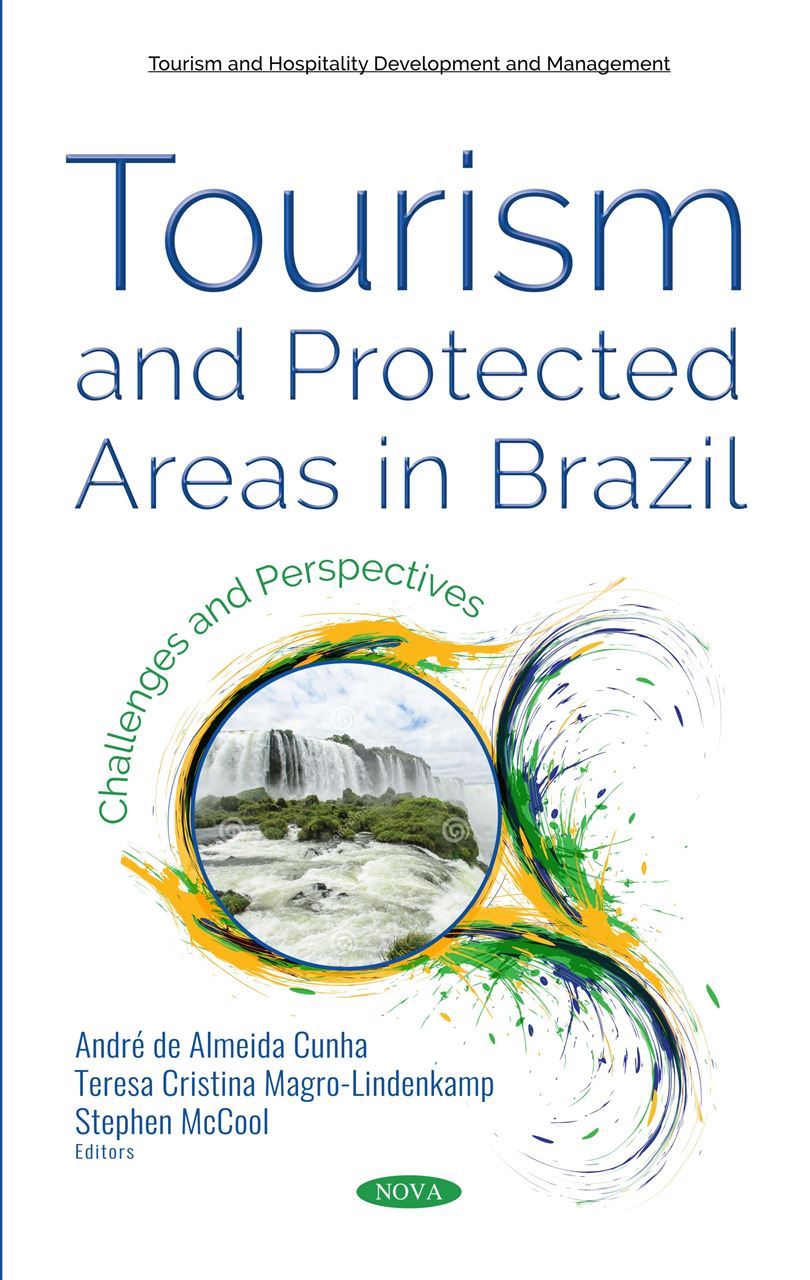
First, I am announcing the publication of the book: Tourism and Protected Areas in Brazil: Challenges and Perspectives. Edited by Andre Cunha, Teresa Magro and myself, published by Nova. The book presents the state of the art in tourism/protected area research published in Portuguese in 2018. It covers many topics dealing with the relationship between tourism and protected areas and is designed to enhance this understanding and provide an initial compilation of research not only relevant to Brazilian scientist and managers but researchers in other geographies as well.
Seeking Professors
If you are a professor and might be interested in sharing information about our forthcoming student membership category with your students, please contact Jessica Fefer (jfefer@g.clemson.edu) to be added to the PUP Professors List or to receive more information.

